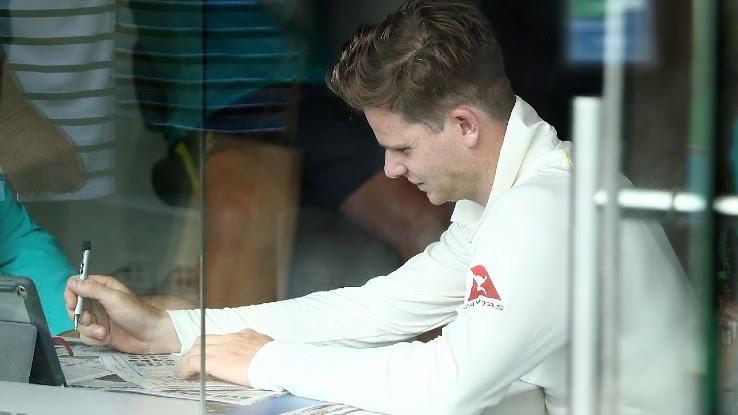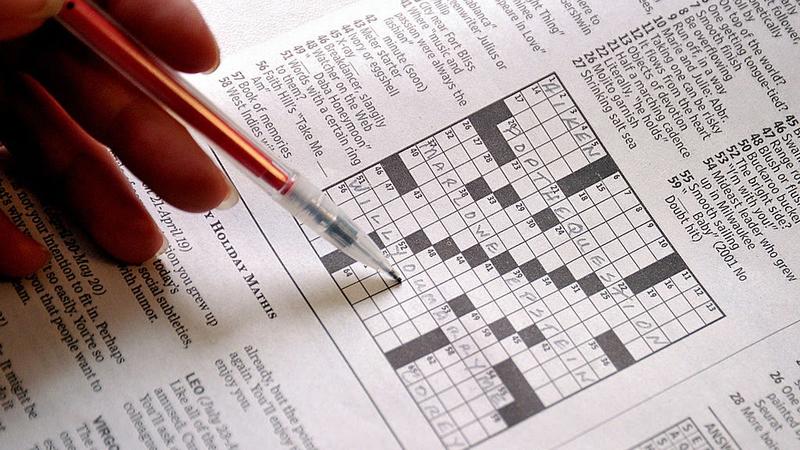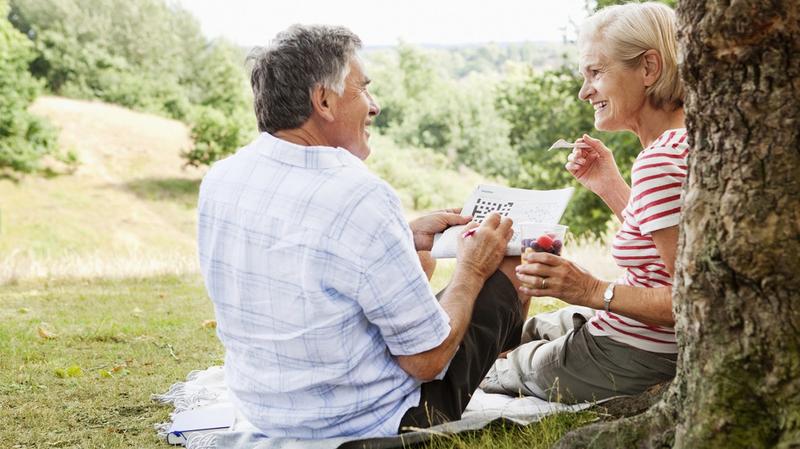The Secret Science of Solving Crossword Puzzles

Curious by nature? Then you probably can’t resist the mystery of a good puzzle. From jigsaw puzzles to mind-bending brain teasers, puzzles have challenged the brains and stubborn natures of humans for centuries. For many, crossword puzzles provide a daily mental workout with their breakfast, on their lunch break or when they’re winding down for bed. If you’re a bookworm or a wordsmith yourself, it’s hard to ignore the allure of correctly filling in all those little boxes. Even better, crosswords don’t just offer fun; they improve brain function and vocabulary skills as well.
In fact, science actually gives you several good reasons you should spend a little time solving crossword puzzles each day. From preventing or slowing Alzheimer’s to expanding your knowledge of new words, the health benefits of analyzing those cryptic clues simply add to the overall appeal of the puzzle-solving process — until you get stuck. Before your blood pressure starts rising over a puzzle you can’t solve, make sure you’re using every trick in the (crossword) book to ensure you never have to accept defeat.
Start with Puzzles in Your League
No one likes to accept defeat. When it comes to crossword puzzles, it only takes a couple of stubbornly elusive words to put a wrinkle in your entire game plan. If you’re fairly new to crossword puzzles or you tend to struggle with completely solving puzzles most of the time, then your first order of business is to start building your skills with the right puzzles and the right approach. Some basic tips can help you get started with some simple, logical steps that are easy to follow. Establishing the best habits in the beginning helps you lay the foundation for harder solves as you progress and expand your puzzle-solving skills.

One of the most important tips when you’re starting out is to choose easy crossword puzzles at first. Don’t rush out and look for a copy of The New York Times and try to tackle the newspaper’s famously challenging puzzle on your first attempt. It won’t end well for you. Those more challenging puzzles are your end game, but you should start much smaller until you’ve acquired some crossword skills and learned a lot of interesting facts along the way that will help you solve future puzzles. If you just can’t resist the temptation of the Times‘ puzzles, at least start with the Monday puzzle, which is the easiest, and work your way through the week. Contrary to popular belief, the Saturday — not Sunday — puzzle is the hardest.
Knock Out the Easiest Clues
Once you’ve found a puzzle that suits your current skill set, look for the fill-in-the-blank clues on the puzzle. These types of clues are usually the easiest to solve, although that might not be true if you aren’t familiar with the theme of the puzzle. Scan down the list of fill-in-the-blank clues and start filling in the answers before moving on to the other clues. Next, give all the remaining clues a quick skim to spot all the answers you definitely already know. Almost every puzzle has at least a few “gimmies,” a combination of deliberately easy clues and those you just happen to know immediately.

When you finish with those, go through the grid to find the three-, four- and five-letter words. These words will generally be the next easiest words to solve. Shorter words come to mind more quickly and with less effort than longer words. Many short words appear repeatedly in puzzles as well, so as you continue to solve puzzles, you will notice them popping up over and over again, making them even easier to remember with each progressive puzzle.
It’s also important to remember that clues obey the rules of the game — for the most part. For example, the clues are generally always written in the same part of speech — you know, noun, verb, adjective, etc. — as the answer. Check the clues for words that end in “-ed,” “-est,” “-ing” or “-s” — which represent past tense verbs, superlative adjectives, participles and plurals, respectively — to see if the crossers match the endings. If so, pencil in the endings before moving on to the next stage of solving the puzzle.
Watch out for word play that can interfere with this rule as you go through the puzzle. You may not notice it at first, but if you ponder some clues more closely, you may spot phrases that could mean different things. For example, “drops on the ground” could mean something falling to the ground (a verb), or it could mean the dew that clings to the leaves each morning as the sun rises (a noun).
Put Those Intersections to Good Use
Remember that you’re never just working with a single clue and a single answer at any given time. The intersections collide in the interlocking and interdependent word pairings in ways that are designed to be helpful, although not necessarily obvious. If you simply can’t figure out one clue, then look at the intersectional clues to see if any of those words and letters help you solve the other clue.

Strive to Be a Know-It-All
If you really want to become a crossword puzzle guru, then it also helps to become a hardcore trivia junkie. You know that person who knows all kinds of details about absolutely everything? Even the weird, seemingly unimportant stuff no one should ever know? That’s a trivia junkie, and that should be you if you really want to make sure a crossword puzzle never gets the best of you.

Even if you don’t think you can pull off becoming a complete trivia junkie, you should at least make it a point to learn something new every day. Start with general topics like history, current events, pop culture, geography and literature, and then move on to niche topics like aviation history, political parties, music subgenres outside your listening experience, unfamiliar countries and authors you’ve never read. Simply reading a few articles a week on various topics can help you learn a lot of crossword-worthy information while expanding your mind and helping you build a better understanding of the world.
Never Just Throw in the Towel
As you continue to solve crossword puzzles, don’t give up when you end up out of your depth on a topic, person or even a single clue. (It will definitely happen.) You can consult Google, a thesaurus or even an app to help when you get stuck. Asking family and friends for input is an option as well. This is true at any stage of your crosswording career. If you don’t know a particular celebrity, athlete or Emmy award winner from the 1950s, it’s okay to get a little background on subjects for the puzzle. Don’t let anyone crossword shame you! You might be surprised at the cool information you learn when you look at it as all part of the fun.

Many hardcore crossword solvers consider it cheating to resort any outside sources, but most regular puzzle-solving folks recognize that getting some help is a legitimate way to become a great puzzle solver. The whole purpose behind these puzzles is to engage the mind, expand your knowledge and improve your vocabulary. Crosswords have been scientifically proven to reduce the risk of dementia and improve verbal and memory skills. Spending time researching answers contributes to these cognitive improvements.
Boost Your Brain Power with a Break
If you’re feeling really stumped, one of the best things you can do is take a break. Walk away from the puzzle for a while and come back to it after you’ve cleared your head. You can take a walk, go for a jog, take a shower or relax in your quiet “thinking place” — anything that triggers the release of dopamine offers a boost to your creativity and recharges your body and your brain.






